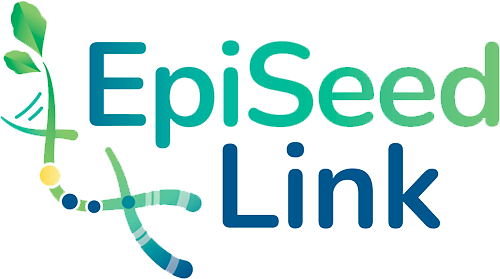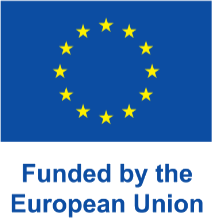PhD position in Gene Regulation and Epigenetics in the group of Dr Maike Stam at the Swammerdam Institute for Life Sciences at the University of Amsterdam, Amsterdam, Netherlands.
What are you going to do?
Identification of oilseed rape cis-regulatory elements involved in drought resistance
You will be working on a project about the cis-regulatory code playing a role in drought resistance in oilseed rape. One of the biggest challenges of your generation is to find solutions to the threats of the changing climate. EpiSeedLink will explore the mechanisms underlying seed priming to improve crop performance under stress conditions such as drought, heat and high light. The response to such stresses is largely accomplished through the activation and repression of cis-regulatory DNA sequences at the correct moment in time and space. Your project will focus on identifying and characterising genes and their cis-regulatory sequences (CRSs) involved in drought resistance in oilseed rape by seed priming. This project promises new targets for informed breeding in oilseed rape.
Your aim will be to make use of different oilseed rape accessions to correlate drought responses to differential epigenomic and transcriptomic data, and nucleotide polymorphisms, to pinpoint genes and CRSs involved in the drought responses. Hereto you will generate and integrate phenotypic, transcriptomic, transcription factor binding, DNA methylation and histone modification profiles of a set of oilseed rape accessions that respond differently to priming and/or drought. You will characterise promising genes and CRSs in more detail by testing their activity and function in transient assays and by genome editing, respectively.
You will actively collaborate with partners at the NUI Galway (Ireland), DSV (Germany) and UZH (Switzerland) and others. You will also benefit from training in plant phenotyping, differential transcription factor binding assays, DNA methylation analyses, oilseed rape transformation and bioinformatics by various partners and associated partners.
What do you have to offer?
- MSc in Molecular Biology and/or Biochemistry
- Experience in molecular biology and/or biochemistry laboratory techniques
- Strong interest in epigenetics and gene regulation
- You are a teamplayer and have excellent communication skills
It is a preference if you feel comfortable performing experimental lab work and have experience with/affinity for bioinformatic data analysis.
Our offer
The duration of the appointment as an MSCA fellow will be for a maximum period of 3 years and will, in line with the duration of a PhD study in the Netherlands, be extended another year according to the employment rules of the University of Amsterdam. The initial contract will be for a period of 18 months and after satisfactory evaluation it will be extended for a total duration of 4 years. The appointment should lead to a dissertation (PhD thesis). A Personal Career Development Plan will be drafted that includes attendance to EpiSeedLink training events and meetings. We also expect you to assist in teaching undergraduates and master students.
The gross monthly salary will be according to the MSCA programme, taking into account the country-specific correction coefficient. Besides the salary, the PhD student will obtain a mobility allowance for the duration of the MSCA programme (3 years; see page Requirements and Conditions). For the one-year extension after the MSCA project, the gross monthly salary will be according to the salary scales of the University of Amsterdam. Positions are aimed at being full-time (38 hours per week), but by exception, if needed for family reasons, part-time appointments are possible.
Besides the salary and a vibrant and challenging environment at Science Park, we offer you multiple benefits:
- 232 holiday hours per year (based on fulltime)
- multiple courses to follow from our Teaching and Learning Centre;
- multiple courses on topics such as time management, handling stress and an online learning platform with 100+ different courses;
- 7 weeks birth leave (partner leave) with 100% salary;
- partly paid parental leave;
- the possibility to set up a workplace at home;
- a pension at ABP for which UvA pays two third part of the contribution;
- the possibility to follow courses to learn Dutch;
- help with housing for a studio or small apartment when you’re moving from abroad.
Are you curious to read more about our extensive package of secondary employment benefits, take a look here.
About us
The University of Amsterdam is the Netherlands’ largest university, offering the widest range of academic programmes. At the UvA, 30,000 students, 6,000 staff members and 3,000 PhD candidates study and work in a diverse range of fields, connected by a culture of curiosity.
The Faculty of Science has a student body of around 8,000, as well as 1,800 members of staff working in education, research or support services. Researchers and students at the Faculty of Science are fascinated by every aspect of how the world works, be it elementary particles, the birth of the universe or the functioning of the brain.
The Swammerdam Institute for Life Sciences (SILS) is one of the Faculty of Science’s largest institutes. Its approximately 240 scientists and staff members work in 16 research groups that perform excellent research centred on four themes: Neurosciences, Cell & Systems Biology, Green Life Sciences (GLS) and Microbiology. The position offered here is embedded within GLS.
Want to know more about our organisation? Read more about working at the University of Amsterdam.
Any questions?
Do you have any questions or do you require additional information? Please contact: Dr Maike Stam; m.e.stam@uva.nl, phone: +31205257655.

